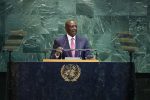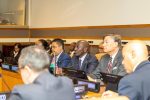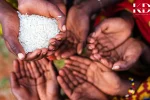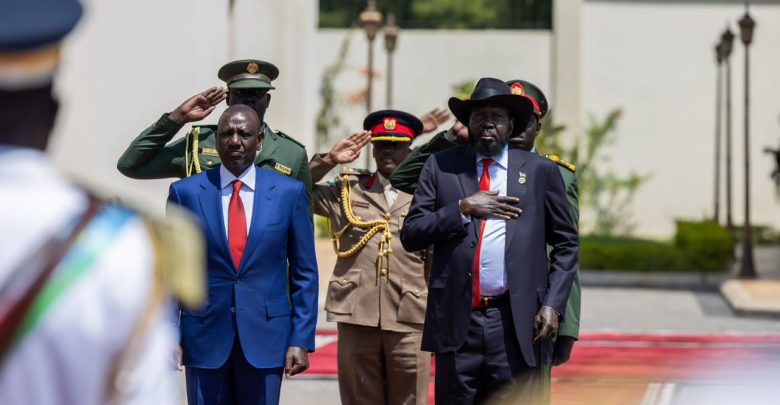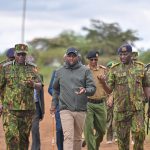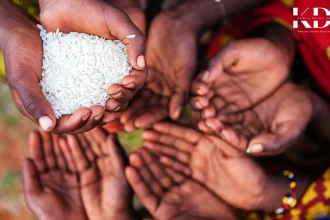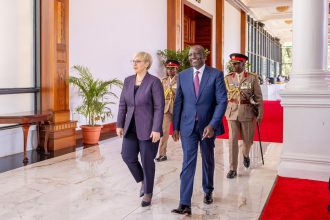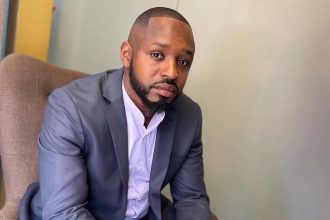Kenyan President William Ruto has stepped into the escalating crisis in South Sudan, announcing plans to send a special envoy to Juba following the arrest of South Sudan’s First Vice President, Riek Machar.
The move comes amid growing fears that the detention could unravel the fragile 2018 peace agreement, plunging the world’s youngest nation back into civil war.
Ruto revealed his diplomatic initiative in a statement on March 27, stating, “Had a phone call with President Salva Kiir on the situation leading to the arrest and detention of 1st vice President Riek Machar in South Sudan. After consultations with President Museveni and Prime Minister Abiy, I am sending a special envoy to South Sudan to engage, try to deescalate, and brief us back.”
The announcement underscores Kenya’s growing role as a regional mediator, as Ruto coordinates with Uganda’s President Yoweri Museveni and Ethiopia’s Prime Minister Abiy Ahmed to address the crisis.
The crisis erupted on March 26, 2025, when South Sudanese security forces arrested Machar, a key figure in the country’s unity government, at his residence in Juba.
According to the Sudan People’s Liberation Movement In Opposition (SPLM/IO), an armed convoy of 20 vehicles, led by top security officials including the defense minister, disarmed Machar’s bodyguards before detaining him and his wife, Interior Minister Angelina Teny.
SPLM/IO deputy chairman Nathaniel Oyet condemned the arrest, calling it “an act of deceit” that undermines the 2018 Revitalized Agreement on the Resolution of the Conflict in South Sudan (R-ARCSS).
“The arrest and detention of H.E. Dr. Riek Machar effectively brings the agreement to a collapse,” Oyet stated..
The 2018 peace deal, brokered after a brutal five-year civil war that killed nearly 400,000 people, had established a power-sharing arrangement between President Salva Kiir and Machar, who became First Vice President.
However, tensions between the two leaders—rooted in ethnic divisions and political rivalry—have simmered for years. The UN Mission in South Sudan (UNMISS) warned that the country “stands on the brink of relapsing into widespread conflict,” with a heavy military presence reported around Machar’s home in Juba.
Regional and International Alarm
The arrest has sparked widespread concern across the region and beyond. The African Union, UNMISS, and the United States have issued statements urging restraint and adherence to the peace agreement.
The U.S. Assistant Secretary of State for African Affairs expressed concern stating, “We are concerned by reports South Sudan’s First Vice President Machar is under house arrest. We urge President Kiir to reverse this action and prevent further escalation of the situation.”
The UN has been particularly vocal, with Nicholas Haysom, head of UNMISS, warning of the broader implications of renewed conflict. This follows recent violence in Upper Nile state, where the White Army militia—a group historically aligned with Machar—overran a military base in Nasir.
The government’s response, which allegedly included aerial bombardment with barrel bombs containing a highly flammable liquid, has caused significant civilian casualties and displaced 63,000 people.
Haysom noted that such actions, combined with “rampant misinformation, disinformation, and hate speech,” are driving ethnic divisions and fear as South Sudan approaches elections expected in 2026.
Adding to the complexity, Machar has accused Uganda of violating the UN arms embargo by conducting airstrikes in South Sudan, a claim denied by Juba but confirmed by local leaders in Upper Nile. Uganda has stated it deployed troops at the request of Kiir’s government, further raising concerns about external involvement in the conflict.
Stay updated with our weekly newsletter. Subscribe now to never miss an update!
South Sudan’s Fragile State
South Sudan, which gained independence from Sudan in 2011, has struggled to maintain stability. The 2013-2018 civil war devastated the country, leaving deep ethnic and political scars.
The current crisis is exacerbated by a dire humanitarian situation: half the population faces food insecurity, 11.4 million people are internally displaced, and 3 million have fled to neighboring countries, according to the International Rescue Committee. A cholera outbreak and recent flooding have further compounded the suffering.
The war in neighboring Sudan, which began in April 2023 between the Sudanese Armed Forces and the Rapid Support Forces, has also strained South Sudan’s economy. A burst oil pipeline—South Sudan’s primary revenue source—has deepened the country’s fiscal crisis, fueling political and security tensions.
Ruto’s Regional Leadership
President Ruto’s intervention reflects his broader strategy to position Kenya as a stabilising force in East Africa. Since taking office in September 2022, Ruto has prioritised regional diplomacy, engaging with leaders across the Horn of Africa to address conflicts in Ethiopia, the Democratic Republic of Congo (DRC), and now South Sudan.
On March 22, 2025, Ruto joined other East African Community (EAC) and Southern African Development Community (SADC) leaders for crisis talks on the DRC conflict, emphasizing coordinated efforts to restore peace in the region.
Ruto’s approach aligns with his ambition to lead the Intergovernmental Authority on Development (IGAD), a regional bloc that includes South Sudan, Ethiopia, Uganda, and Sudan.
His current efforts in South Sudan may bolster his diplomatic credentials, though they have drawn mixed reactions at home.
Ruto faces a delicate balancing act. While his diplomatic push signals Kenya’s commitment to regional stability, the complexity of South Sudan’s crisis—marked by deep-seated ethnic tensions, external interference, and a humanitarian catastrophe—poses significant challenges.
The success of his special envoy’s mission to Juba will be a critical test of his influence and the region’s ability to avert another devastating conflict.
As diplomatic efforts intensify, the international community watches closely, hoping that dialogue can prevent South Sudan from sliding back into the abyss of war. For now, the region holds its breath, with Ruto at the forefront of a high-stakes effort to secure peace.



